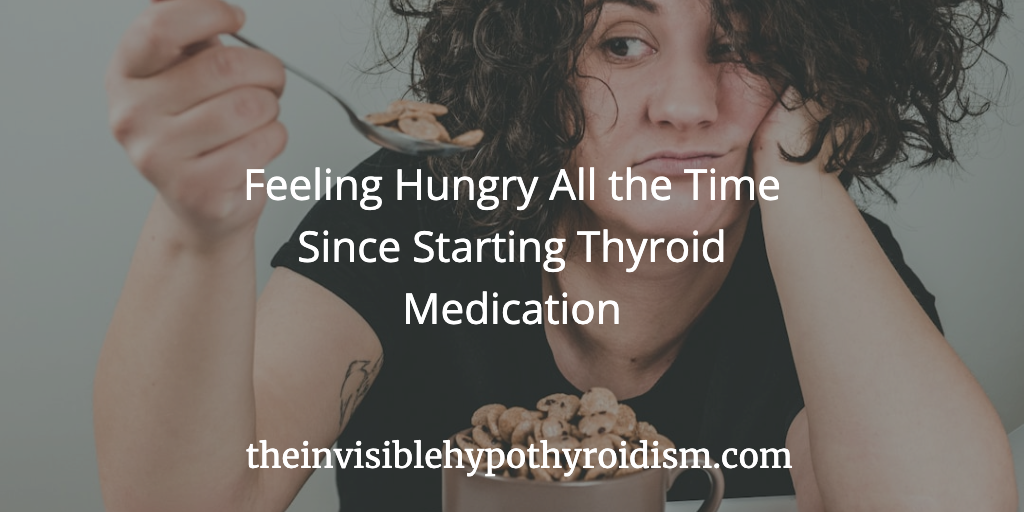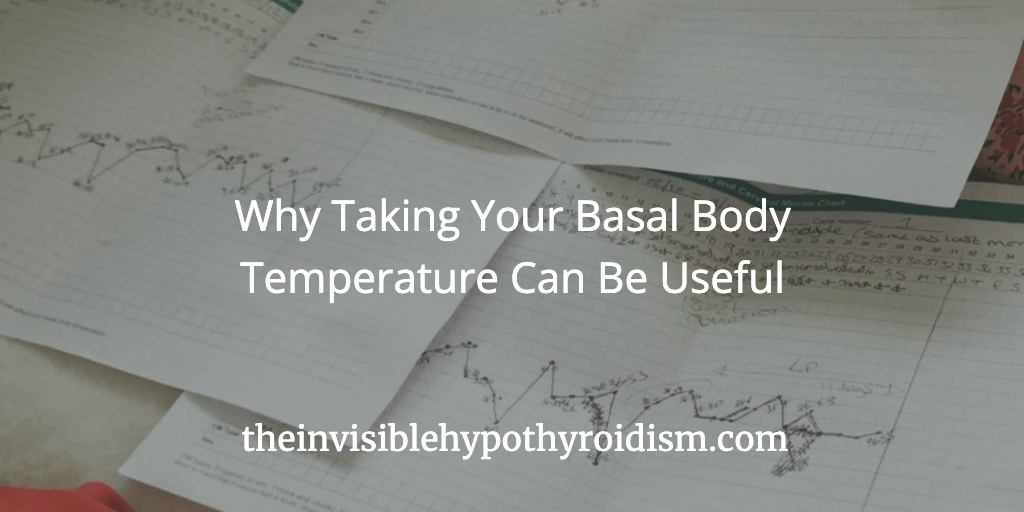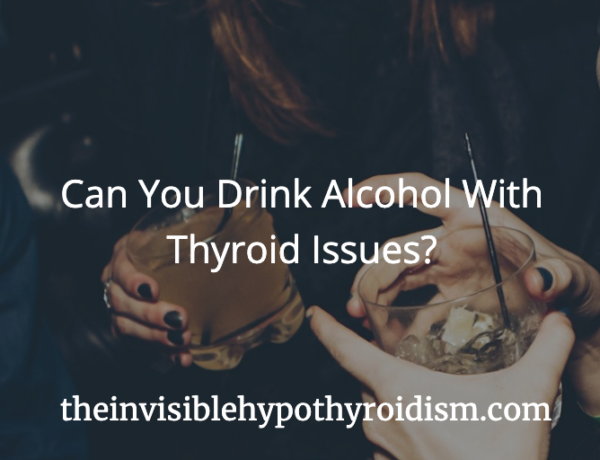Beginning thyroid hormone replacement (often referred to as ‘thyroid medication‘) such as Synthroid, Levothyroxine, Armour, Liothyronine etc. can often feel overwhelming. You may be apprehensive about whether this treatment will work or whether you will have any side effects.
While it is worth knowing that many people respond well to the first type of treatment they are offered (and for those who do not, other options may be explored), side effects are also not that common. However, one I see a lot in online thyroid groups is feeling an intense hunger when starting on thyroid medication or increasing the dosage of your thyroid medication.
Why does this occur and when does it resolve?

Your Thyroid and Metabolism
The main purpose of thyroid hormone is to ensure the metabolism is running properly. Therefore, when we do not have enough thyroid hormone and are thus hypothyroid, our metabolism slows down and causes symptoms of fatigue, weight gain, cold intolerance and more.
The purpose of treatment for hypothyroidism is to replace those missing hormones and top us back up to normal amounts. This is done via thyroid medication. When we have been hypothyroid for some time before starting thyroid medication, our metabolism may experience a bit of a kick (and depending on just how hypothyroid you were, this may be more or less subtle) when we start thyroid medication.
Your metabolism coming back online, as if to speak, or getting a sudden helping hand, may make you feel suddenly more hungry. As thyroid medication typically takes at least a few weeks to really start building in your body and kicking in, it is common to feel it around this time, but many report feeling it within a few days of starting or being on a higher dose.
When you first start thyroid medication or make a dosage adjustment, you may feel fluctuations in symptoms, including your appetite, while hormones take a while to shift and settle.
Hyperthyroidism
An increased appetite can also be a sign of hyperthyroidism or being overmedicated (on too high a dose of thyroid medication) so it is also worth telling your doctor and having a full thyroid panel checked if you haven’t done so recently, to rule this out.
Please note that TSH alone does not give the full picture and that Free T3 and Free T4 also need to checked and ideally optimised as opposed to just ‘in range’.
Note: you can order a full thyroid panel test from here (UK) and here (US).
Your Diet and Blood Sugar
The glycemic index is a measurement of how quickly we burn food, and simple carbohydrates such as refined white sugar, refined flour, white rice, white bread, potatoes and carrots all have a very quick burn rate. Because of this, when eaten, they can cause a spike in our blood sugar, followed by a crash and a need for more food soon after.
We tend to become hungry again in less than an hour after consuming carbohydrates, whereas fat and protein have a slower burn rate and keep us fuller for longer. They are absorbed more slowly and gradually, and do not raise blood sugar levels as quickly as carbs and sugar do.
Assuming enough calories are eaten to feel full, a person will be hungry again around two to three hours after consuming a meal or snack high in protein, and about four hours after consuming fat.
Good sources of protein can include meats, cheese, eggs, nuts, seeds, yoghurts, beans and legumes.
Good sources of fat include olive oil, sesame oil, avocados, olives, nuts, seeds, peanut butter, flaxseed, salmon, chia seeds, eggs and seed butter.
Some thyroid patients cut calories in an attempt to lose weight gained from hypothyroidism, however, not consuming enough calories can not only reduce Free T3 levels (the active thyroid hormone) but also leave us feeling very hungry indeed.
Related Post: Is Dieting Making You More Hypothyroid?
Lost Appetite Making a Return
A common symptom of hypothyroidism is a loss of or lack of appetite due to the metabolism slowing down, or feeling so fatigued and unwell that you just have little desire to eat. If this symptom resolves on thyroid medication and your appetite is returning, it may feel as if you are suddenly hungry all the time while you adjust.
When Should it Settle?
Keeping all of these possibilities in mind, many people find that the issue of ‘feeling hungry all the time’ subsides once they are stable on their thyroid medication, having found the right dose and been on it for a few months at least. Eating in a way to properly fuel your body, as explained above, can really help, too. If you are concerned, do make your doctor aware and ensure you have regular thyroid tests to rule out overmedication for example.
Have you experienced this? Let me know below.

See also:
The book Be Your Own Thyroid Advocate: When You’re Sick and Tired of Being Sick and Tired, which discusses the steps we can take to feel in control of our thyroid health and live fully.




